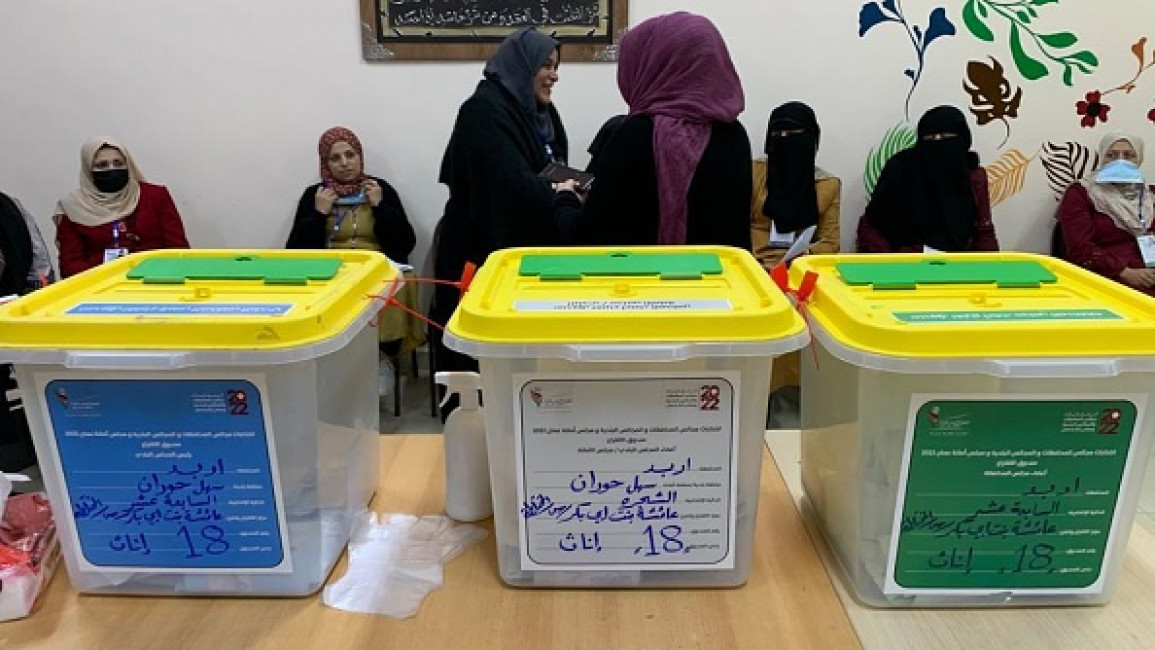Jordanian opposition political party complains of targeting by the state
A Jordanian opposition party, the Partnership and Salvation Party (PSP), said that its application to renew its registration has been unfairly rejected by the government and has complained that its members have been threatened by security services.
In response to the party's rejection, dozens of prominent Jordanian human rights activists and lawyers issued a statement on Friday against the "fierce attack and harsh pressure" against the PSP.
The party's general secretary, Salem Falahat, told The New Arab that despite complying with the newly passed party law, the party's renewal application was rejected last week.
According to Falahat, the party passed the 1,000-member threshold and the quotas specifying how many women and people under the age of 35 needed to be included in the membership.
The Independent Elections Commission (IEC), which licenses parties in the kingdom, rejected over 100 party members and asked for a "certificate of good conduct" from these members, a day before the licensing deadline.
Party leadership has said that there is no provision in the law which requires members to prove good conduct and questioned why the IEC asked for these certificates so close to the deadline.
The conflict between the IEC and the PSP has raised questions about the new elections system in Jordan, created in late 2021 to "modernise" the country's political system.
The new party law was a process of a nearly year-long study conducted by a royally appointed "modernisation committee," which also recommended several constitutional changes.
The new law was meant to increase youth and female participation in the elections process, as well as increase the share of seats political parties take in the country's parliament.
According to the IEC, 20 political parties have registered under the new party law, while 12 were rejected.
Opposition political figures have criticised the new party law, saying it allows the state undue influence in the electoral process.
"The new party law has not contributed to promoting democracy in Jordan, unfortunately. The state often interferes by creating parties that comply with its benchmarks, specifically benchmarks from the security services," Khaled Hussein, a PSP spokesperson, told TNA.
PSP officials also claim that their members have come under targeted harassment by Jordanian security services.
"The mukhabarat [intelligence services] called over 400 members and threatened them. Those that had relatives in the army, for example, were told they would not receive promotions if they remained in the party," Hussein said.
At least 300 members sent in their resignations from the party without advance notice over the last two months, he added.
TNA asked the Jordanian embassy in Beirut for a comment on the PSP's allegations but did not receive a response by the time of publishing.
Rights monitors have noted a steady decrease in civic freedom within Jordan in the last four years.
In September 2022, Human Rights Watch urged Jordanian officials to "address the downward spiral on rights", noting that authorities "persecute and harass citizens" who engage in dissent.


![President Pezeshkian has denounced Israel's attacks on Lebanon [Getty]](/sites/default/files/styles/image_684x385/public/2173482924.jpeg?h=a5f2f23a&itok=q3evVtko)



 Follow the Middle East's top stories in English at The New Arab on Google News
Follow the Middle East's top stories in English at The New Arab on Google News


